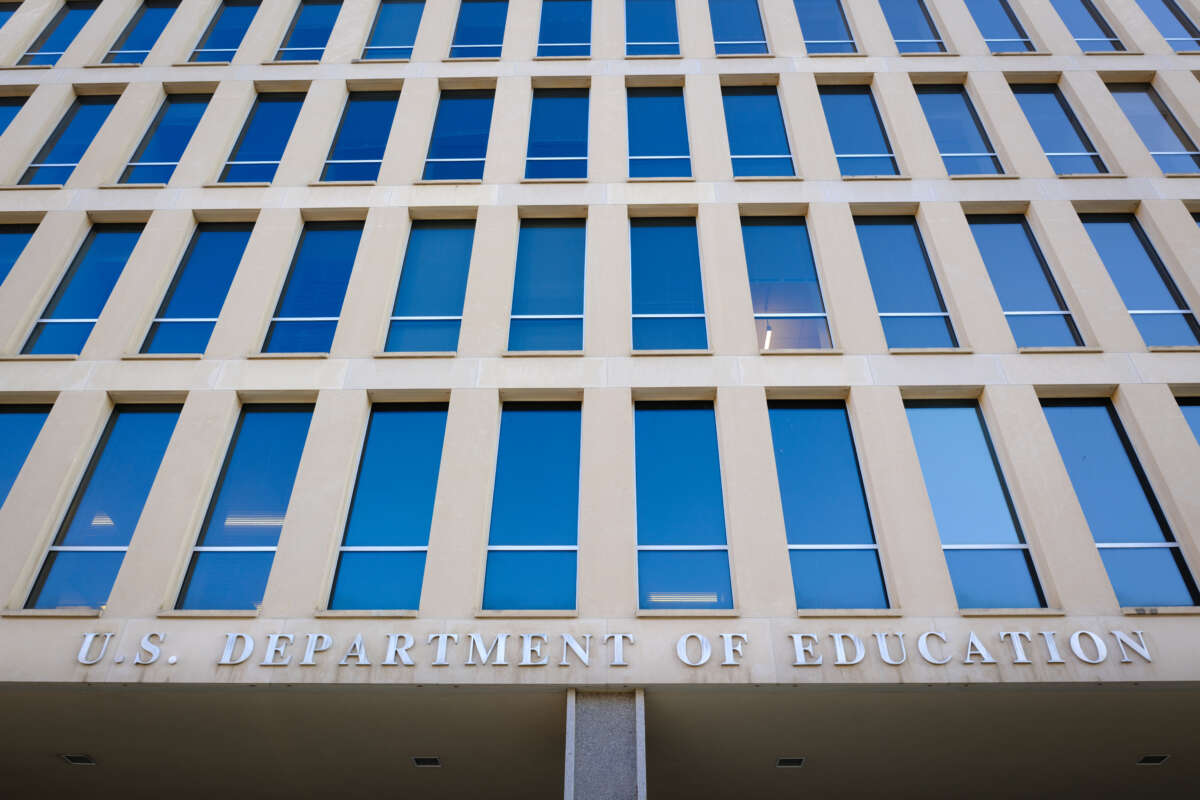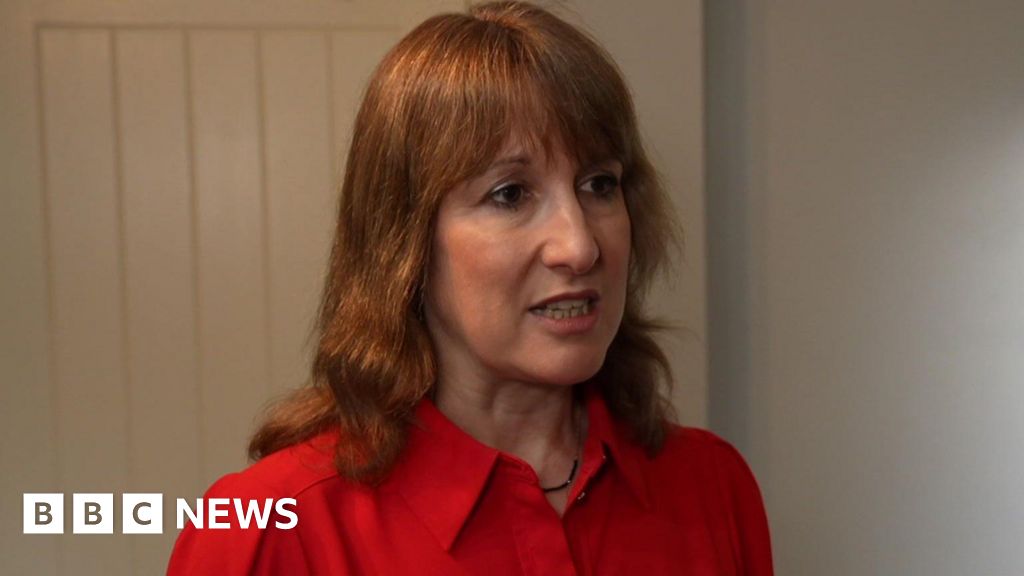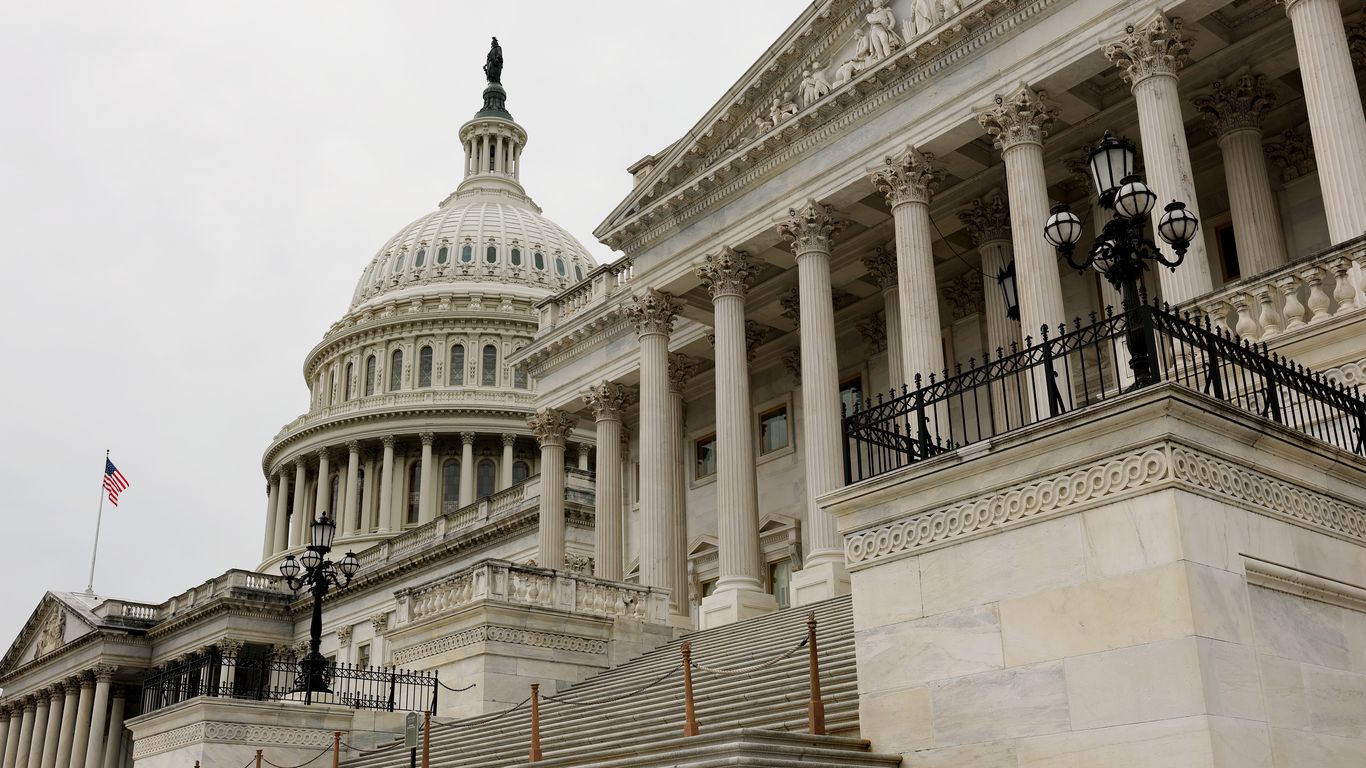#student-loans
#student-loans
[ follow ]
fromBusiness Insider
4 days agoNurses take center stage in the debate over Trump's student loan overhaul
The new borrowing caps, in particular, have sparked conversation and concern among advocates, lawmakers, and students. The department proposed a $100,000 lifetime borrowing limit for graduate students and a $200,000 limit for professional students, and narrowed the programs that would qualify as "professional" to 10, including medicine, dentistry, and law. Post-graduate nursing programs are not included in the professional definition, meaning that students in those programs would not qualify for the higher borrowing limit.
US politics
UK politics
fromwww.theguardian.com
5 days agoThe Guardian view on student loans: a graduate levy by stealth is no way to fund the NHS | Editorial
Freezing the student loan repayment threshold effectively imposes a tax increase on graduates by raising marginal tax rates and reducing disposable income when wages rise.
fromBusiness Insider
5 days agoA physician saddled with 7-figure debt explains how she started buying property with her 401(k) funds
By the time Dr. Jill Green finished medical school, she'd racked up seven figures in student debt and had virtually zero assets. "My net worth was negative $1 million," the family practice and emergency medicine doctor told Business Insider. "Our primary home was our only asset." Green, who began her career in investment banking before pivoting to medicine, began entertaining the idea of property investing after hearing a physician couple speak at a virtual entrepreneur event for doctors.
Real estate
fromwww.theguardian.com
1 week agoStudent loans: why is Martin Lewis clashing with Rachel Reeves?
The disagreement is focused on the estimated 5.8 million people who took out a student loan between September 2012 and July 2023. For many of these graduates, everything they hand over from their salary is dwarfed by the interest that is slapped on their debt every month. What prompted the latest row is Reeves's decision to freeze the salary threshold forrepayments for plan 2 student loans for three years which means many graduates will now have to pay even more.
UK politics
fromBusiness Insider
1 week agoTrump is overhauling student loans, and private lenders are preparing for an influx of borrowers
Sen. Elizabeth Warren and a group of her colleagues released the first congressional analysis of the impact of the coming changes to federal student loans on the private lending market. The report - exclusively viewed by Business Insider - compiled new information provided by six lenders, detailing how they are preparing for an anticipated influx of borrowers into the private market.
Higher education
Higher education
from24/7 Wall St.
1 week agoDave Ramsey: "Those Parent Plus Loans Are Going to Balloon to $175,000 If We Just Fight Over This"
Prioritize paying down smaller student loan balances first, including parent Parent PLUS loans, using the debt-snowball method to build momentum and limit high interest growth.
Higher education
fromwww.theguardian.com
1 week agoThe long-term cost of high student debt in the UK is not just for graduates | Heather Stewart
The student loan system shifts most higher-education costs onto graduates, leaving taxpayers responsible for a tiny share and causing widespread financial burdens and anger.
UK politics
fromwww.independent.co.uk
2 weeks agoGraduates being squeezed' for cash-strapped government, experts warn
Free-to-read journalism relies on reader donations to fund on-the-ground reporting; students face higher repayments after a repayment threshold freeze, prompting Martin Lewis's criticism.
fromAbove the Law
2 weeks agoRegional Law School Explores Long-Distance Merger - Above the Law
One way for a struggling law school to save face is to merge with another school to alleviate their need for funding, student head counts, and the like. The Appalachian School of Law is in a rough spot - low enrollment and funding issues are pushing them to merge with another school. There is a small issue: the school they're considering merging with is about three hours away.
Higher education
from24/7 Wall St.
2 weeks agoSocial Security Retirees Get Good News from Trump Administration
And while the average retirement benefit today is only $2,071, it's somehow just enough income for some seniors to live on. But it's not a given that every Social Security recipient will get their monthly check in full. Working while collecting Social Security, for example, could result in withheld benefits for exceeding the program's earnings test thresholds. The earnings test applies to Social Security recipients who have not yet reached their full retirement age.
US politics
UK politics
fromwww.theguardian.com
2 weeks agoOn 100k and feeling hard-done-by? It seems absurd but a cold truth lies beneath | Jason Okundaye
High-earning urban professionals face tax, childcare, and student-loan thresholds that reduce net gains from higher pay, discouraging promotions and extra work, particularly in London.
Higher education
fromInside Higher Ed | Higher Education News, Events and Jobs
3 weeks ago4 Takeaways From Trump's First Year in Office
The Trump administration rapidly reshaped higher education through funding cuts, enforcement actions, visa revocations, and planned accreditation, grant, and student-loan reforms.
Higher education
fromInside Higher Ed | Higher Education News, Events and Jobs
4 weeks agoStudents Should Insure an Investment as Important as College
Loan Repayment Assistance Programs function as student loan insurance, letting students pursue preferred majors and careers without fear of unaffordable debt.
US politics
fromBusiness Insider
1 month agoMore Americans may turn to alternative lenders as Trump pushes for caps on student loans and credit card interest rates
New caps on student-loan borrowing and proposed credit-card rate limits could push Americans toward private and personal loans, boosting demand in lending markets.
fromBusiness Insider
1 month agoOver 400 student-loan borrowers shared their concerns for 2026 about SAVE, defaulting, and payment plans
Some borrowers told me that they achieved student-loan forgiveness or repaid their loans in full. However, the majority of respondents reported a range of concerns about the future of their balances, including worries about losing a key affordable repayment plan, struggling to get help from their servicers, being in default on their loans, and more. Trump's "big beautiful" spending legislation includes the elimination of existing income-driven repayment plans and replacing them with two less generous options.
US politics
Higher education
fromBusiness Insider
1 month agoTrump is moving forward with his student-loan repayment overhaul - this time focused on unaffordable debt
The Department of Education proposes revising the gainful employment rule, removing the debt-to-earnings test, aiming to reduce complexity but possibly weakening borrower protections.
Higher education
fromFortune
1 month agoEvery year, a billionaire CEO doles out $1,000 checks to local college grads-with a catch: They have to give half the money to charity | Fortune
Rob Hale annually gives $1,000 to recent Massachusetts college graduates who must pledge to donate at least half of the gift to charity.
fromBusiness Insider
1 month agoStudent-loan borrowers face a slew of changes in 2026: 'It's going to be very scary to figure this out."
Misty Knapp just wants the student-loan forgiveness she was promised. Knapp, 59, has been working in public service as a nurse since 2012 and has been enrolled in the Public Service Loan Forgiveness program since 2017, which forgives student debt for government and nonprofit workers after 10 years of qualifying payments. She said she didn't know PSLF existed when she entered public service, but once she saw it was possible to get her six-figure balance forgiven, she was banking on the relief.
Higher education
Canada news
fromwww.cbc.ca
2 months agoBuy now, pay later plans are everywhere. Here's how they're affecting debt-stressed Canadians | CBC News
Young adults under 35 face rising debt—student loans, first-time credit cards and buy-now-pay-later plans—creating financial strain and stalled progress in life.
US politics
fromBusiness Insider
2 months agoTrump is changing student-loan eligibility for professional degrees. Here's what you need to know.
The Department of Education set new graduate and professional loan caps and narrowed professional-degree eligibility to ten programs, potentially limiting healthcare graduate funding.
fromInside Higher Ed | Higher Education News, Events and Jobs
2 months agoWhat to Know About the Definition of Professional Degree
From TikTok to Instagram, to local news headlines, the plan set off a storm of online criticism as influencers and advocacy groups take issue with the supposed declassification of certain degrees. But defining programs as professional or graduate isn't a debate about social prestige or cultural characterization; it's a debate about access to student loans, and now the Education Department is saying it's time to "set the record straight."
Education
US politics
fromFast Company
2 months agoNurses are rallying to defend their profession after nursing degrees were deemed not 'professional'
Removing nursing from the professional degree list will subject nursing students to lower federal loan caps, reducing access to education financing and increasing financial burden.
fromInside Higher Ed | Higher Education News, Events and Jobs
2 months agoWarren Requests Investigation into ED's Dismantling
Warren also detailed what she learned as she delved into the Trump administration's efforts to dismantle the department and requested a broader investigation of the dismantling. Her effort included sending eight letters to the Education Department (ED) and a meeting with Education Secretary Linda McMahon. Warren said the department "largely failed to provide complete and transparent answers" in response to her letters.
Higher education
fromScary Mommy
2 months agoIf Nursing Were Male-Dominated, Would The Trump Admin Classify It As "Professional"?
Earlier this month, the Department of Education reached a consensus on how to implement the Big Beautiful Bill's student loan-related edict: "to place commonsense limits and guardrails on future student loan borrowing," according to a press release from the agency. The bill was signed into law by President Donald Trump this July, setting new lifetime borrowing caps of $100,000 for graduate students and $200,000 for professional students. This month's committee finally established what degrees count as "professional," and notably, no nursing degrees made the cut.
Education
fromInside Higher Ed | Higher Education News, Events and Jobs
2 months agoWhat to Know About Crucial Changes to Student Loans
Student loan advocates and borrower protection groups across the country have spent much of the last five months preparing for a series of big changes Congress laid out regarding the student loan system. From limiting the amount students and families can borrow to cutting the number of repayment plans they'll have to choose from, the One Big Beautiful Bill Act is one of the more significant overhauls to federal student aid in decades.
Higher education
fromTruthout
3 months agoIf Trump Sells Student Loan Portfolio, Avenues of Debt Cancellation Could Close
Federal law dictates that such a sale cannot cost taxpayers any money. But, as Eileen Connor, executive director of the Project on Predatory Student Lending, told Politico, executing a deal that benefits both taxpayers and borrowers is nearly impossible. The federal government enjoys extraordinary powers of collection that private lenders do not - such as garnishing tax refunds, disability benefits, and Social Security payments. Absent those collection methods, private lenders make money through higher interest rates and longer repayment plans.
US politics
US politics
fromBusiness Insider
3 months agoA former Trump student-loan official calls for at least $100K to be returned to borrowers who faced 'unfair' credit reporting
Former Trump student-loan official A. Wayne Johnson filed a class-action suit alleging improper default reporting by the Education Department and credit bureaus after collections resumed.
fromBusiness Insider
3 months agoThe shutdown isn't stopping Trump's major student-loan repayment overhaul
On Monday, the Department of Education will begin its second week of negotiations with stakeholders on President Donald Trump's plan to overhaul repayment plans and impose new caps on borrowing. The changes were codified in Trump's "big beautiful" spending bill, which he signed into law in July. The department is now undergoing negotiated rulemaking, a process that includes negotiation sessions and periods of public comment, with implementation set to begin in July 2026.
US politics
Careers
fromBusiness Insider
3 months agoI couldn't afford my rent and student loans, so I moved in with my mom. It took me 3 years to get back on my feet.
Moving back home eased financial burdens but prolonged dependence, and ultimately leaving home became the best decision for personal and professional growth.
Higher education
fromMoneywise
3 months agoNYC grad thought she was paying down her student loans - until she found out they were in forbearance. How to make sure it doesn't happen to you
Servicer transfers often trigger administrative forbearance, causing interest to accrue and increasing balances unless borrowers proactively check accounts or make payments.
fromFast Company
3 months agoIs a college degree worth the price? Universities are scrambling to prove their worth
For a generation of young Americans, choosing where to go to college - or whether to go at all - has become a complex calculation of costs and benefits that often revolves around a single question: Is the degree worth its price?Public confidence in higher education has plummeted in recent years amid high tuition prices, skyrocketing student loans and a dismal job market - plus ideological concerns from conservatives.
Higher education
[ Load more ]



















